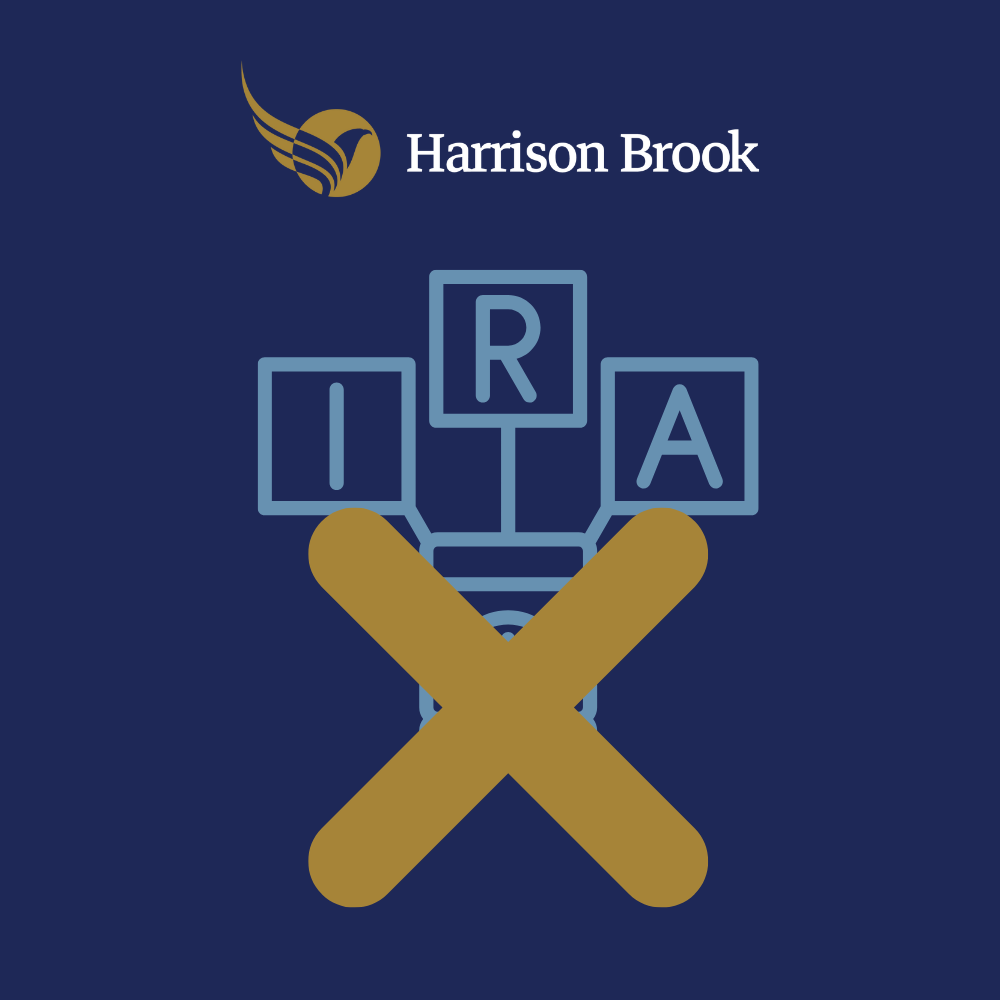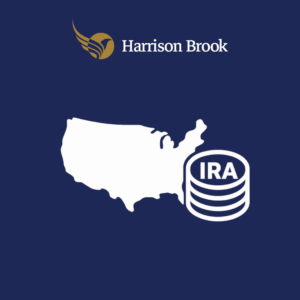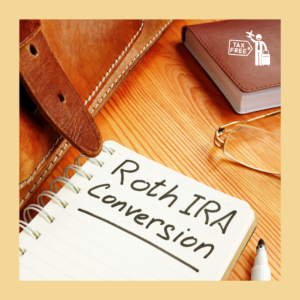
For many Americans living overseas, the challenge of managing retirement savings goes beyond investment choices. For an American living abroad, there are unique financial challenges, such as dealing with inherited IRA accounts and navigating cross-border investing strategies. One of the most pressing concerns is the possibility of your IRA being closed living abroad. In recent years, an increasing number of U.S. brokerage firms and banks have tightened their rules, often freezing or shutting down accounts once clients provide a foreign address. Many expats are surprised by these sudden changes or restrictions. If you are an expat or planning to relocate, understanding what this means for your IRA and your retirement future is essential.
Introduction to IRA Account Closures
For American expats, the risk of IRA account closures has become a pressing issue as more financial institutions tighten their policies for citizens living abroad. Major brokerage firms like Merrill Lynch and Morgan Stanley, along with many other providers, are increasingly restricting or shutting down IRA accounts for clients with a foreign address. These changes are largely driven by international regulations and the growing compliance burdens placed on firms managing accounts for Americans living abroad. As a result, managing retirement savings and investment accounts from overseas can become complicated and stressful.
It’s essential for expats to understand why these closures are happening and what alternatives are available. The foreign earned income exclusion and foreign tax credit can also affect your ability to contribute to an IRA, further complicating retirement planning for those earning income abroad. By staying informed about these issues, American expats can make better decisions to protect their retirement savings and ensure their financial future remains secure, no matter where they live.
Why Are US Expat Brokerage Accounts Being Closed?
The closure of IRA and brokerage accounts for Americans overseas is rarely personal. Instead, it is driven by regulatory and compliance pressures. U.S. financial institutions face strict rules around Know Your Customer (KYC) and anti-money laundering requirements. When you change your residence to a non-U.S. address, many firms simply decide the risk and compliance costs outweigh the benefit of keeping you as a client.
FATCA (Foreign Account Tax Compliance Act) also plays a role. Although FATCA is primarily about U.S. citizens disclosing their foreign accounts, many U.S. providers have responded by restricting services to expats altogether. As a result, access to certain accounts and investment products is now restricted for expats.
In short, your brokerage may not want the responsibility of managing cross-border clients, which is why many U.S. expats suddenly find themselves locked out of their retirement accounts. Other firms and brokers may have different policies or approaches toward expat clients, so experiences can vary.
Key factors that influence whether an account is closed include compliance costs, regulatory risks, and the client’s location.
What Happens to Your IRA if You Move Abroad?
One of the most common questions is whether you can keep your IRA if you relocate overseas. In most cases, the answer is yes. U.S. law does not prohibit you from holding or maintaining an IRA while living abroad. The real challenge is whether your provider will allow it. When living abroad, it is important to consider how you will manage and transfer your retirement assets to ensure legal ownership and optimize their value across borders.
Some custodians will continue servicing expats, but many will freeze your account from new contributions or, worse, send you a notice that your account must be closed. This is especially common with smaller banks or brokerage firms, and as a U.S.-connected person, you may face additional compliance steps.
If you receive such a notice, you will typically be asked to either transfer your IRA to another provider or take a distribution, which could trigger taxes and penalties if not handled correctly.
Additionally, be aware of the reporting requirements for your IRA when residing overseas, as these can vary depending on your country of residence and the type of account.
Can You Move an IRA Offshore?
You cannot directly move a U.S. IRA into a foreign retirement account. However, you can transfer your IRA from one U.S. custodian to another that specialises in servicing expatriates. This is often the best solution if your current provider is closing your account.
Specialist international financial advisers, such as Harrison Brook, work with custodians who are comfortable holding accounts for U.S. citizens abroad. This ensures you do not lose access to your retirement savings and that your investments remain properly managed. As an investor living overseas, you may face unique challenges managing your retirement accounts due to international restrictions, making it essential to find an expat-friendly investment broker or custodian.
Do You Lose Your Retirement if You Move to Another Country?
No, you do not lose your retirement savings simply because you change your address. Your IRA, 401(k), or other retirement accounts are still yours. The key risk is not losing the funds but losing access to them if your provider refuses to maintain your account. However, managing your IRA from a foreign country can present unique challenges, such as tax implications, account equivalents, and currency risks, which require careful planning.
This is why many expats proactively transfer their retirement accounts to providers experienced with cross-border clients before moving overseas.
Can You Keep Contributing to an IRA Living Abroad?
This depends on your situation. To contribute to an IRA, you must have earned income that is taxable in the U.S. If you are an expat working abroad and using the Foreign Earned Income Exclusion (FEIE), your eligible income may be reduced to zero, which means no contributions can be made. Foreign income, including income earned abroad and income subject to international tax treaties, can impact your eligibility to contribute to an IRA. There is a certain amount you can contribute to a traditional or Roth IRA each year, but this is subject to income limits and phase-outs. However, if you are paying U.S. taxes on part of your income, you may still be eligible.
For most expats, the focus shifts from contributions to managing and preserving existing accounts. Even when living abroad, you may still need to pay taxes on withdrawals or distributions from your IRA, depending on U.S. tax rules and any applicable tax treaties.
What Happens if You Move to Canada, the UK, or Europe?
Different countries come with different rules, especially around tax treaties. For example:
- Canada: There is a strong tax treaty with the U.S., meaning IRAs can usually be maintained and withdrawals are coordinated between the two tax authorities.
- UK and Europe: Rules vary widely, but many U.S. providers will close accounts for residents in these regions unless you use a custodian tailored for expats. EU residents face additional restrictions due to EU financial regulations such as MiFID II, which limit access to U.S.-registered investment products.
U.S. IRAs differ from local pension plans, and transferring or managing retirement savings abroad requires careful consideration of eligibility, tax treatment, and available options.
Before moving, it is important to understand both the U.S. tax implications and the local country’s treatment of your IRA. A professional adviser with cross-border expertise is invaluable here.
Navigating Regulatory Restrictions
Navigating the maze of regulatory restrictions is a critical part of managing brokerage accounts and retirement accounts as an American expat. Laws like the Foreign Account Tax Compliance Act (FATCA) and European regulations such as MiFID II have made it more challenging for financial institutions to serve expat clients. These rules often result in restrictions on expat brokerage accounts, limiting access to certain mutual funds and investment products.
For Americans living abroad, understanding the differences between traditional IRAs and Roth IRAs is vital, as each comes with its own set of tax rules and implications. While traditional IRAs may offer tax-deferred growth, Roth IRAs provide tax-free withdrawals under certain conditions, but both can be affected by international regulations and account restrictions.
Given the complexity of these rules and the potential impact on your retirement planning, consulting with a financial advisor who specializes in expat financial services is highly recommended. An expert can help you navigate these restrictions, maintain access to your accounts, and develop a strategy that aligns with your long-term financial goals.
Expat Financial Services
Expat financial services are an invaluable resource for Americans living abroad who face unique challenges in managing their wealth. These services go beyond basic investment management, offering tailored solutions for tax planning, retirement planning, and navigating the complex regulatory environment that affects expats. Whether you’re managing a traditional IRA, Roth IRA, or other investment accounts, working with a financial advisor who specializes in expat clients can help you make informed decisions and avoid costly mistakes.
A knowledgeable advisor can help you understand the restrictions on your accounts, identify alternative investment options, and develop a comprehensive plan to maximize your wealth and minimize your tax liabilities. With the right support, Americans living abroad can confidently manage their retirement savings, stay compliant with tax rules, and achieve their long-term financial goals, no matter where life takes them.
What to Do If Your IRA Is Being Closed
- Do not panic – your money is not lost.
- Seek professional advice – consult an adviser who works with U.S. expats.
- Transfer your IRA – move it to a custodian that accepts overseas residents.
- Open a new brokerage account – when transferring, choose an expat-friendly provider to avoid future restrictions.
- Avoid distributions – unless strategically planned, withdrawals can create tax penalties.
Note: Access to paid accounts (those with fees or commissions) may also be affected by account closures.
In other cases, accounts may be closed for reasons beyond just having a foreign address, such as compliance or risk management decisions by the institution.
Other considerations include compliance requirements, legal risks, and potential fees when transferring accounts as an American expat.
By acting early, you can avoid unnecessary disruptions and ensure your retirement savings stay on track.
FAQs – IRA Being Closed Living Abroad
Can I keep my IRA if I move abroad? Yes, but it depends on your provider. Some custodians allow it, while others will close the account.
Why is my brokerage account blocked after moving overseas? Regulatory pressures like FATCA make many firms unwilling to service overseas clients.
Can I contribute to an IRA while living abroad? Only if you have eligible U.S. taxable earned income.
Can I transfer my IRA to another bank? Yes, you can roll over your IRA to another U.S.-based custodian that accepts expats.
Will I lose my retirement savings if my account is closed? No, your funds remain yours. The key is transferring them before a forced closure.
Taking the Next Step
Living abroad brings incredible opportunities but also unique financial challenges. If your IRA is at risk of being closed, you do not have to face it alone. At Harrison Brook, we specialise in helping U.S. expats secure and manage their retirement savings internationally. US expats often face specific challenges such as account accessibility, tax obligations, and the need for tailored financial strategies when managing their retirement accounts abroad. From transferring IRAs to managing 401(k) rollovers and investment strategies, we ensure your retirement planning stays on track wherever you live.
👉 Speak with a Harrison Brook adviser today to protect your IRA and plan your financial future overseas.



